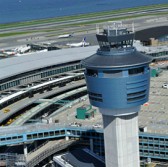 Delegates at the International Telecommunication Union’s 2015 World Radiocommunication Conference in Geneva have allocated the 1087.7-1092.3 megahertz frequency band to track aircraft worldwide.
Delegates at the International Telecommunication Union’s 2015 World Radiocommunication Conference in Geneva have allocated the 1087.7-1092.3 megahertz frequency band to track aircraft worldwide.
ITU said Wednesday the agreement over the radiofrequency spectrum allocation is in response to the March 2014 disappearance of Malaysian Airlines flight MH370.
“In reaching this agreement at WRC-15, ITU has responded in record time to the expectations of the global community on the major issue concerning global flight tracking,†said Houlin Zhao, secretary general of ITU.
The allocation of the frequency band aims to allow space stations to receive Automatic Dependent Surveillance-Broadcast signals from aircraft as well as determine and report the positions of planes in various parts of the world.
The International Civil Aviation Organization will need to review the performance criteria for the reception of aircraft transmitter-derived ADS-B signals by satellites, ITU said.
ITU is a specialized agency of the United Nations that works to handle issues related to communications platforms and information technologies.
The union holds WRC every three to four years to assess and revise regulations over the use of geostationary-satellite orbits and radiofrequency spectrum allotment.




